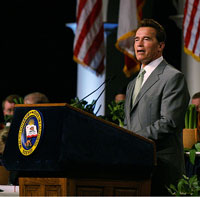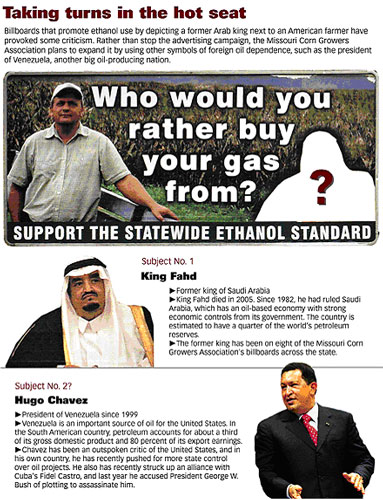 Cellulosic ethanol and biodiesel hit the spot for a company known as Amelot.
Cellulosic ethanol and biodiesel hit the spot for a company known as Amelot.
According to their website, “Amelot Holdings Inc. is a Natural Resources and Energy Company including Oil, Gas Alternative and Bio-Energy projects.” A press release this week from Kerry Associates says they have entered into joint negotiations with a cellulose ethanol technology company on behalf of Amelot.
An earlier press release from Amelot announced that they have ordered bio-diesel processing equipment to start production at its first facility, to be located in New Hampshire. Amelot expects to produce over 1 million gallons in 2006. “We are extremely excited that this initial purchase has been formalized. This investment will enable us to create a division within the holding company dedicated to the development of alternative fuels and bio-diesel production. Having already established a solid infrastructure allows us to be generating substantial revenue and profits from this facility within the next 90 days,” commented Aziz Hirji, President of Amelot Holdings, Inc.
 To help get you fired up about the Clean Cities Congress & Expo I interviewed Kimberly Taylor, Director of Business & Consumer Programs for the Alternative Fuel Vehicle Institute. She gives us a pre-conference overview of what to expect.
To help get you fired up about the Clean Cities Congress & Expo I interviewed Kimberly Taylor, Director of Business & Consumer Programs for the Alternative Fuel Vehicle Institute. She gives us a pre-conference overview of what to expect.  Kimberly Taylor Interview (9 min MP3)
Kimberly Taylor Interview (9 min MP3)



 California Gov. Arnold Schwarzenegger is directing his state agencies to fight high gas prices by expanding bio-fuels, according to a
California Gov. Arnold Schwarzenegger is directing his state agencies to fight high gas prices by expanding bio-fuels, according to a 
 Senator Charles Grassley (R-IA) and Sen. John Thune (R-SD) issued a
Senator Charles Grassley (R-IA) and Sen. John Thune (R-SD) issued a  The
The  Cellulosic ethanol and biodiesel hit the spot for a company known as
Cellulosic ethanol and biodiesel hit the spot for a company known as  The
The 